Breaking the Silence
Lichess will no longer cooperate with the US Chess Federation and the Saint Louis Chess Club

This article contains potentially distressing content.
Introduction
In February, chess commentator and author Jennifer Shahade publicly accused grandmaster Alejandro Ramirez of sexual misconduct. Her allegations sparked a swift and severe backlash against Ramirez, who was forced to resign from the Saint Louis Chess Club (STLCC), before being permanently banned by the United States Chess Federation (US Chess).
The allegations also exposed apparent failures at US Chess and STLCC. Yet, neither organization has faced any serious scrutiny or accountability for their handling of the case.
And Ramirez is not the only one. According to interviews and documents reviewed by Lichess, one other prominent American grandmaster has also been accused of sexual misconduct by multiple women, raising further troubling questions about how chess organizations deal with such matters.
Lichess has decided to stop cooperating with both organizations due to serious concerns about their accountability. We will not provide them with support, and we will not advertise their events.
Women and girls in chess already face an uphill battle. They deserve a safe and supportive environment. But too often, they encounter abuse, harassment or worse. And too often, they feel powerless to report it or seek justice. It’s time to help break the silence.
Another high-profile case
Uzbek-American grandmaster Timur Gareyev has achieved several impressive feats in his chess career, such as sharing third place at the 2013 US Championship and reaching a peak classical rating of 2682. He is perhaps best known for giving large blindfold simuls, earning him the nickname of the “Blindfold King.” A 2013 ChessBase article praised him as “one of the most energetic mavericks in the chess world,” and in 2016 The Guardian profiled him as he prepared to break the world record by playing 48 games simultaneously while blindfolded in Las Vegas.
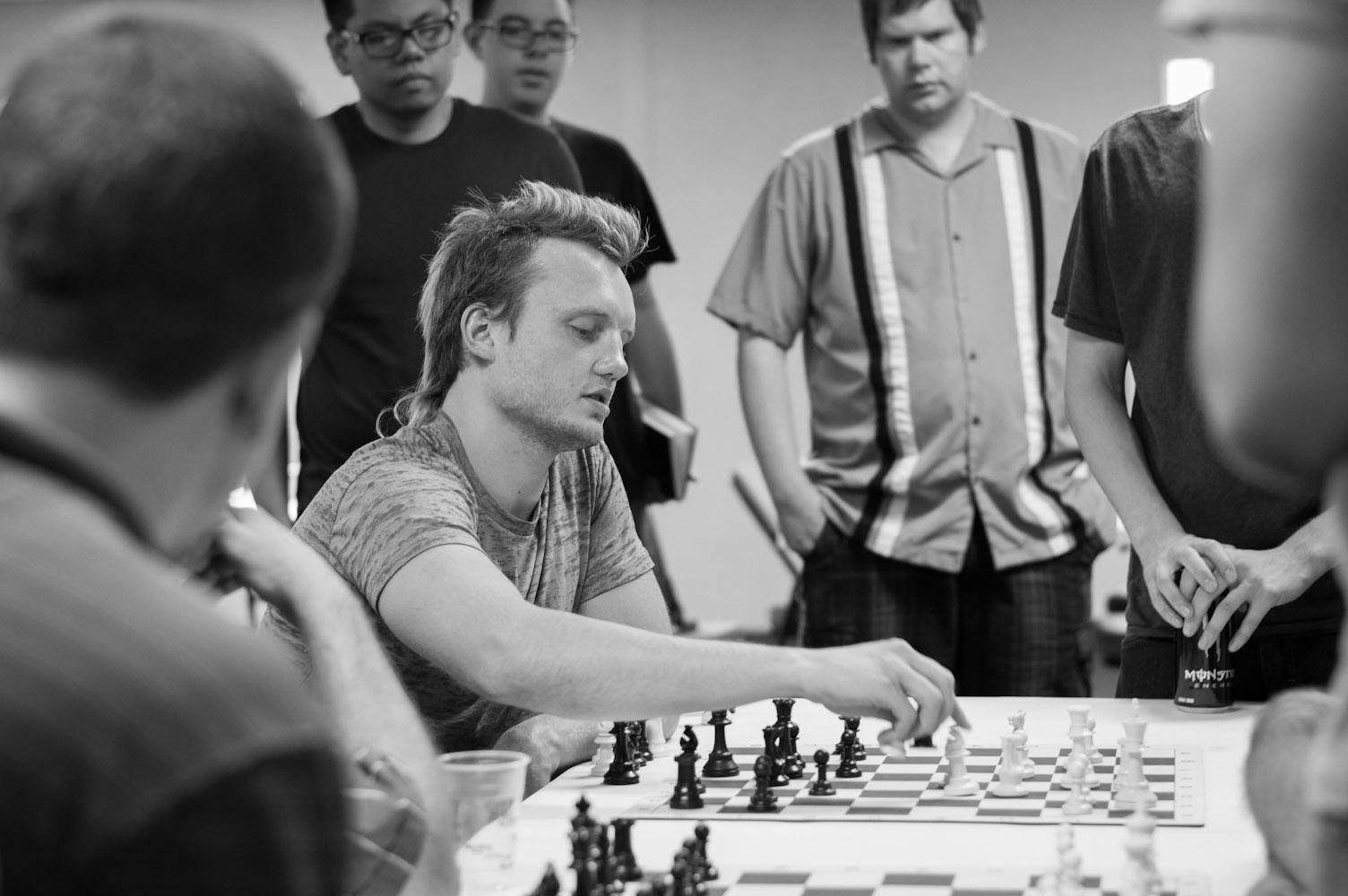
Timur Gareyev in 2015. Credit: Juan Jauregui.
However, there is another side to Gareyev. Lichess has obtained documents that show he has faced multiple sexual misconduct complaints since 2019.
Lichess has spoken to two women who allege that Gareyev assaulted them during separate chess tournaments in 2019. Both tournaments were sanctioned by US Chess. One alleged incident happened as the woman was walking from the tournament hotel to her car. The other happened inside the tournament venue.
One woman provided the following account to Lichess:
"Timur spins around quickly, pins my arms to my sides, and tries to kiss me, aggressively. His fingers were digging into my arms. I can not get free. I was turning my head side to side, saying, "No Timur. Stop. I don't want this." I can still feel his beard on both of my cheeks as I am struggling. He said, "But, I just want to …” He was holding my arms with both hands. When he changed his grip, I managed to force him off-balance for a moment and finally pulled away. I guess that I should have raised my knee to kick him, or maybe thrown my head forward to get him to let go. I had no idea that he was that strong. I was not expecting Timur to grab me like that. [...] Everything happened so quickly, but I was powerless to stop it."
The other woman’s account alleges that Gareyev approached and grabbed her so suddenly that it left her off-balance and afraid she was about to fall – before kissing her on the lips. She says that Gareyev seemed to think that it was funny, but she felt in shock and unable to move while it was happening, and afterwards remained in stunned silence.
One of the women filed a formal complaint with US Chess shortly after the alleged assault, but the US Chess ethics committee refused to “accept jurisdiction” of the matter. In essence, the committee said that it could only deal with complaints about incidents that happened inside or on the grounds of the tournament hotel, as these would have a “direct connection” to the tournament. But this incident had happened just outside the hotel, so the committee did nothing to sanction Gareyev beyond noting its dismay at the woman’s account and promising to keep the complaint on file.
Lichess has learned that this decision did not sit well with everyone at US Chess. There was sufficient unease within the organization that when the same woman attended a US Chess tournament in 2021 – two years after her alleged assault – a senior US Chess official was asked to escort her around the playing hall to ensure her safety in case Gareyev appeared.
Moreover, in 2021 US Chess received another report about Gareyev, this time alleging that he inappropriately touched a female player at a tournament.
All three alleged incidents were reported to US Chess. Two of them happened in relatively public places. It is therefore likely that many if not all US Chess executive board members were aware of them to some degree.
US Chess did eventually act against Gareyev, but only after receiving multiple Safe Play reports. These were filed in accordance with the US Chess Safe Play Guidelines, a framework for handling misconduct complaints that was first published in September 2019 – only three months after the ethics committee effectively rejected the first complaint against Gareyev.
In June 2022, Gareyev was banned from playing or attending US Chess national events for two years, and his US Chess membership was suspended for a year. But the sanctions were unlikely to have much impact, for several reasons.
First, his ban only applied to “US Chess National Events,” meaning that he could attend local and regional events, as well as give simuls and visit clubs (as he did recently when he worked with a youth chess club in Texas).
Second, since the sanctions (understandably) could only affect events within the United States, Gareyev was free to play in other countries. In the last 12 months, he has given a simultaneous exhibition at the 2023 FIDE World Championship, won the Kenyan Open, and played in the ongoing FIDE World Cup in Azerbaijan. The fact that high-profile offenders can avoid the consequences of geographically limited sanctions highlights the need for complete transparency by authorities.
Third, until late June, US Chess kept these sanctions a secret. When complainants were informed of the sanctions, they were also asked to “handle this information with the sensitivity it deserves.” The sanctions were not announced or publicized. The only sign of anything unusual was a small change on Gareyev’s US Chess member page, which showed the term “Suspended Member” for the duration of his membership suspension. This was removed on 6 June 2023, as his page returned to normal, but it can be seen in an older archived version. Even when it was spotted on Twitter last September, the discussion went nowhere. The change by itself was ambiguous, as it did not reveal the other sanctions or why they had been imposed.

An archived version of Gareyev’s US Chess member page from March 2023
On 23 June 2023 – after Gareyev’s membership suspension had ended – US Chess made a sudden move to disclose information about previously sanctioned members, saying it was “in the interest of transparency” in a brief statement.

Details about the sanctions against Gareyev, published by US Chess on 23 June (link to PDF)
In a letter informing one of the women about the sanctions, US Chess wrote that they hoped that the woman could “again participate in chess activities without fear.” However, the woman in question, who was previously a highly active chess volunteer, organizer, and official in various roles, says that she has stopped going to chess events.
When approached for comment, Gareyev said:
"I would love to focus on contributing to the betterment of [the] chess community and all the people benefiting from engaging intellectually, partaking in contests to raise their spirits through the game of chess."
Unresolved questions
US Chess and STLCC also continue to be silent about important and unresolved aspects of the Alejandro Ramirez case – six months after the first public allegations appeared.
Last year, US Chess commissioned a third-party review of its response to reports about Ramirez. But we only know three things about the review: (1) it was completed before 24 May, when US Chess released their final statement on Ramirez; (2) according to US Chess, it concluded that “the US Chess response was timely and appropriate regarding the reports it received about Ramirez’s conduct;” and (3) it will not be published for witness confidentiality reasons.
We accept that there could be valid reasons to not publish the review. However, in our opinion, the one-line conclusion in US Chess’ 24 May statement provides little assurance, not least because it has been challenged by two of the women who submitted formal complaints to US Chess about Ramirez. One of them is Jennifer Shahade, who made her views clear last month on Facebook and Twitter.
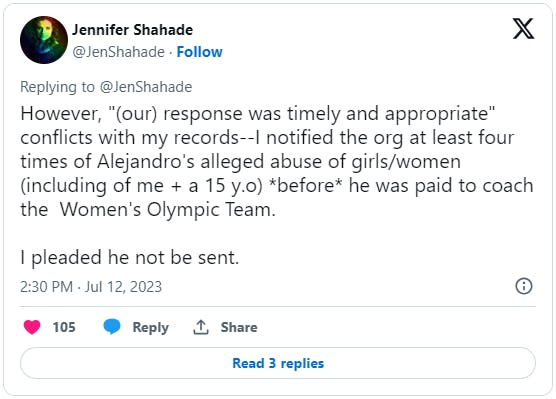
Tweet by WGM Jennifer Shahade, 12 July 2023
Another woman whose allegations about Ramirez were reported to US Chess also challenges the finding:
"I do not agree that US Chess was "timely and appropriate" in regards to reports about Ramirez's conduct. I submitted the Safe Play Complaint form with details of sexual abuse prior to an event I was attending where I knew [Ramirez] would be present. The receipt of my report was immediately acknowledged. However, I was not informed of an investigation until a month after my official report and after the event had passed. No effort was made by US Chess to ensure my safety during the event, where several US Chess officials and representatives were present. After my interview, I was told that the information would be reviewed at the next board meeting, and I would be informed of the results. I never heard back. During this time, Ramirez was allowed to participate in US Chess events and coach various female-only teams. Only when Jennifer Shahade raised the issue publicly several months later did anything concrete happen."
The 24 May statement has left many questions unanswered. US Chess has still not supplied a clear account of when officials received information about Ramirez’s alleged misconduct and what was done about it.
US Chess has not been fully transparent about how Ramirez was appointed as coach of the US women’s team for the 2022 Olympiad, and then why he was allowed to go to the Olympiad in August 2022.
Ramirez’s appointment as coach was announced online in June 2022. US Chess has claimed that the players on the team selected Ramirez “independently.”
But Jennifer Shahade has told Lichess that she had previously been assured that Ramirez would not be considered for any coaching roles, and so she was “shocked” when she first learned the news. This challenges US Chess’ claims about how Ramirez was selected.
Regardless, Shahade says that she emailed US Chess officials about the matter in June 2022 – two months before the Olympiad – and informed them that she had recently heard new information from a woman who alleged that Ramirez abused her when she was 15 years old, and that she herself had been attacked by Ramirez in the past. Therefore, even if US Chess officials had nothing to do with the choice of Ramirez as coach, they were nevertheless reminded of credible concerns about his appointment weeks before the event.
Furthermore, Ryan Velez, a former member of the US Chess executive board, has told Lichess that US Chess can remove a coach through a majority vote. Velez contends that if US Chess was contractually bound to pay Ramirez for his role, then the organization must bear ultimate responsibility for selecting him.
Velez went on to explain his specific concerns in a statement to Lichess:
"I believe US Chess has a blind spot when it comes to dealing with titled players. For most of the cases I saw involving sexual allegations, US Chess moved swiftly to suspend US Chess membership and/or take other measures against alleged offenders. However [...] regarding titled players, things often take longer which can potentially increase the number of potential victims. I also feel the 2023 statement by US Chess is misleading and continued evidence of the blind spot they have in these matters. US Chess is generally an excellent organization with a vibrant chess culture. The staff who work there are amazing and implement policy, but they do not shape the policy (that is the job of the Executive Board). I hope my voice contributes toward positive change within US Chess."
When approached for comment, US Chess provided Lichess with the following statement:
"US Chess is committed to protecting the safety of its members and their right to be treated with respect. Our direct actions in recent months include announcing a new Safe Play training requirement via a partnership with the U.S. Center for SafeSport for all of our Tournament Directors (we have 6,477 active TDs), publishing a list of members who have been sanctioned by US Chess, appointing a Safe Play Working Group, and updating our selection process for team coaches/captains. We will remain vigilant in identifying and adopting additional best practices."
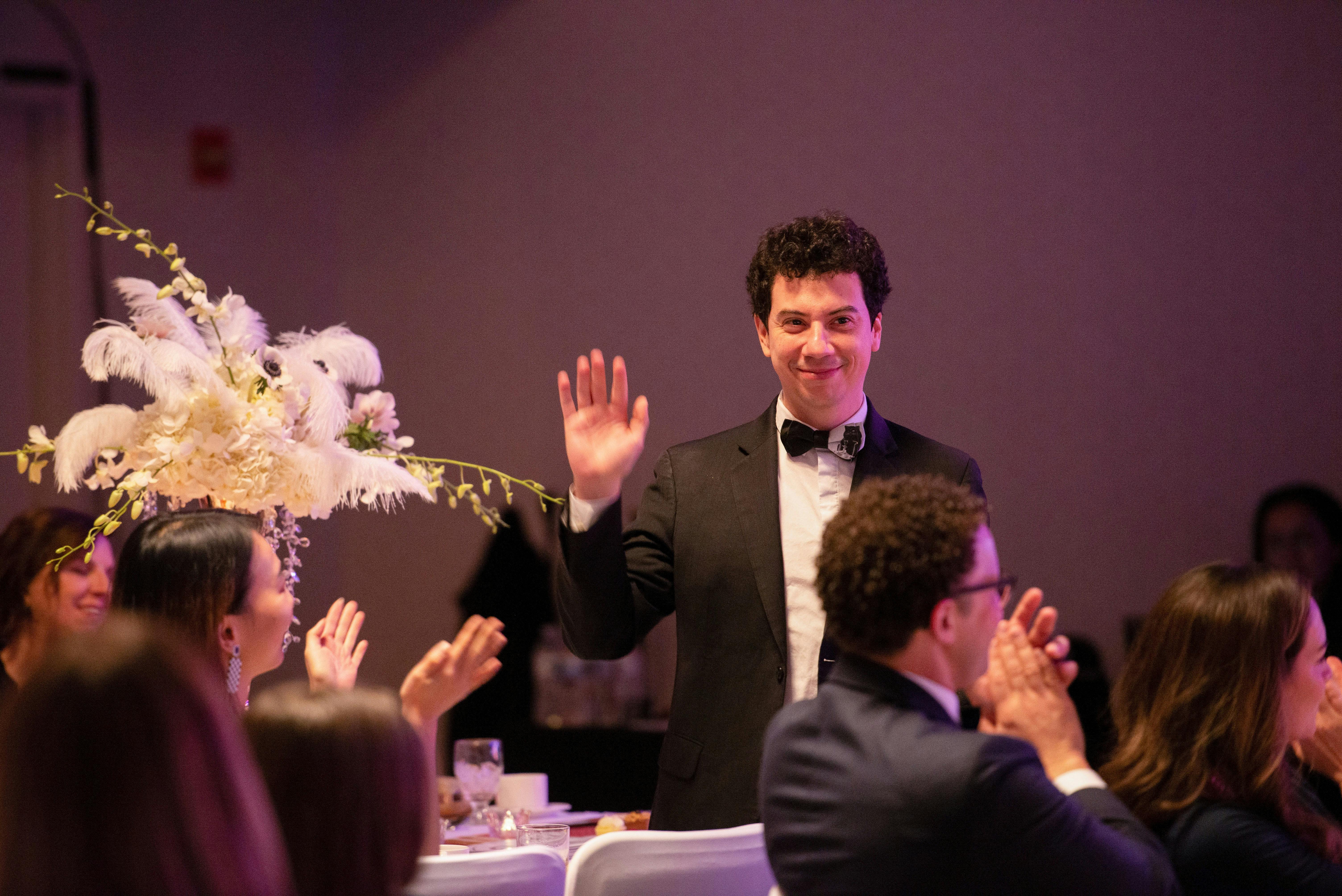
Alejandro Ramirez at the World Chess Hall of Fame, December 2022. Credit: Austin Fuller
In our opinion, the Saint Louis Chess Club has also failed to provide a transparent account of its handling of reports about Ramirez. Lichess has seen internal club communications confirming that multiple reports had been received about Ramirez without any action being taken until an investigation was commissioned in September 2022. Lichess has also learned that Jennifer Shahade notified club officials several times about Ramirez’s alleged misconduct – including in summer 2020, October 2020, January 2021, and September 2022 – and that she urged the club to act against Ramirez.
For its part, the club has said in public statements that it received no reports of alleged sexual misconduct by Ramirez that occurred while he was a club employee, and that it initiated an investigation as soon as it received reports from an identified source.
At the same time, the club has not clarified its procedures for handling serious workplace-related complaints. Jennifer Shahade has told Lichess that when she first learned that Ramirez was scheduled to do commentary for the US Junior Girls Championship in October 2020, she immediately informed STLCC that she would not be willing to work alongside him. Shahade says she told the club that she was aware of multiple allegations of sexual misconduct by Ramirez, and that she herself had previously been assaulted by Ramirez. This is corroborated by the club’s public statements. Afterwards, however, as was reported in the Wall Street Journal, “she was told to call him and deal with the matter.”
After speaking to Shahade, Ramirez voluntarily withdrew from the broadcast of the US Junior Girls Championship. But later he worked on many broadcasts for the club, including the 2022 US Junior Championships. In fact, his already high profile in the chess community ascended to new heights after a notable interview with Hans Niemann at the 2022 Sinquefield Cup. Meanwhile, Jennifer Shahade has not appeared on an STLCC broadcast since the 2020 US Junior Girls Championship – the event that Ramirez withdrew from. [1]
Ramirez with Rex Sinquefield (founder of the Saint Louis Chess Club), September 2022
Given the respective outcomes for Ramirez and Shahade, it is reasonable to ask whether the club has instituted appropriate procedures for handling workplace complaints. Some club policy documents are published on the STLCC website, but they fail to describe what a club employee should do if they were to experience or observe potential sexual harassment involving other employees or on club premises.
The St. Louis Post-Dispatch has reported that in 2021, Greg Shahade – Jennifer Shahade’s brother and a well-known chess professional in his own right – emailed STLCC to ask them to investigate Ramirez. Shahade informed the club of another woman who said she had been assaulted by Ramirez when she was 15 years old, who would be willing to be interviewed as part of any investigation.
According to the Post-Dispatch, in a letter sent to Shahade two months later, a lawyer for the club said that STLCC was not “aware of any inappropriate conduct” by Ramirez that was connected to his employment at the club, and that it was not the appropriate body to investigate allegations that were “external or unrelated” to STLCC, before going on to conclude, as quoted in the article: “In our judgement,” they wrote, “this approach balances the interests of the alleged victim to be in a safe environment and Mr. Ramirez’s right to his good name and reputation.”
Thus, it appears that STLCC were provided with an opportunity to potentially substantiate an allegation about Ramirez but declined to do so. When approached for comment, the club advised Lichess that "certain of [the article's] statements and assertions are not only incomplete in light of all the surrounding circumstances, and in some cases simply false."
Conclusions
In June, all four women on the US Chess Accessibility and Special Circumstances Committee resigned in protest at what international arbiter Judit Sztaray described as the hypocrisy of US Chess in addressing inclusion:
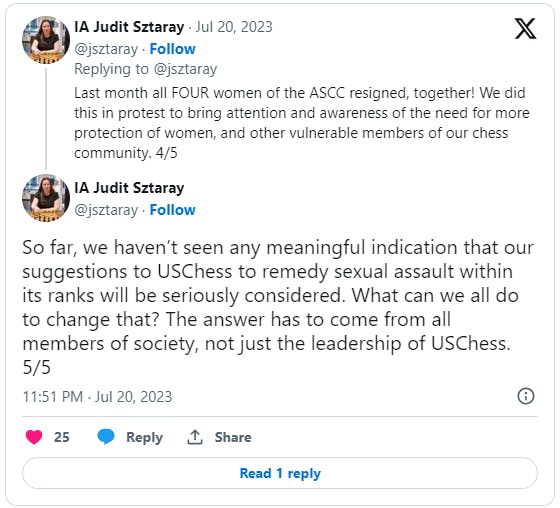
Tweet by IA Judit Sztaray, 20 July 2023
We share their concerns. Given what has been reported and what we have learned about their handling of allegations of sexual misconduct by titled players, we do not trust that the current leadership of US Chess and STLCC can be relied on to protect women and girls in chess.
Therefore, the Lichess team has decided to formally end all cooperation with both US Chess and STLCC, meaning that we will not provide them with any technical or direct support, and we will not advertise their events on Lichess or social media.
We are particularly concerned about the role potentially played by senior officers and committee members in both institutions in presiding over cultures where alleged misconduct was heard about and discussed but not acted on. Inaction can have devastating consequences.
We urge US Chess and STLCC to publicly acknowledge their past mistakes, be more open with the public, and hold those who engage in misconduct accountable.
Our criticisms are not aimed at most US Chess and STLCC employees, who are blameless. We especially appreciate the courage of everyone who agreed to speak to us for this article, and we hope their example inspires others to come forward.
We note that US Chess has recently taken steps to improve its processes: in May it committed to reviewing its internal policies, training and communications; and on 9 August, it announced that it had partnered with the U.S. Center for Safesport and introduced new mandatory training for tournament directors.
However, in our opinion, both US Chess and STLCC have failed to demonstrate an important aspect of accountability – a willingness to acknowledge and address past shortcomings. We do not think that reconciliation will be possible without this acknowledgement.
As Melinda Matthews wrote in a powerful and deeply researched essay on sexual harassment in the chess community, “Keeping silent about harassment and abuse has repercussions for the victim [...] it often means walking away from a game they love.”
The woman who made a complaint about Timur Gareyev in 2019 says that she no longer attends chess events. After being allegedly assaulted by Ramirez in 2014, Claire Grothe soon left her job. The four members of the US Chess accessibility committee who resigned in June also decided to walk away. This continues to happen in various forms to women in chess all over the world.
Meanwhile, Gareyev, who recently played in the FIDE World Cup in Azerbaijan, took to social media last month to criticize what he described as “badmouth and gossip promoted by certain individuals.”
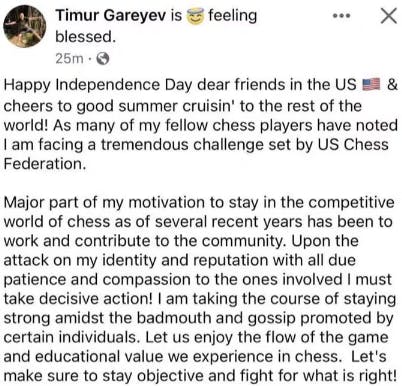
Facebook post by Timur Gareyev, 4 July 2023 (link)
We invite anyone who wishes to come forward with new or relevant information to contact us by email (contact@lichess.org). If you have been affected by any of the issues in this article, please see the following links for information and support: BBC / RAINN / Helping Survivors. For those who wish to read more, a supplementary timeline of relevant events is provided below.
Notes
[1] Shahade’s prolonged absence from STLCC broadcasts has not gone unnoticed. For example, in a 16 February article for Chess.com, Peter Doggers wrote “Why we haven’t seen Shahade in the St. Louis live broadcasts was revealed today.”
Supplementary timeline
Dates in this timeline indicate when events and alleged incidents occurred, not when they were reported. Sources in parentheses are listed at the end.
2011
- A woman alleges that she was sexually assaulted by Alejandro Ramirez at a chess camp in 2011, when she was 15 years old. (WSJ)
- Jennifer Shahade alleges that she was assaulted by Ramirez for the first time in 2011. (Lichess)
2012
- In November, Ramirez was a coach with the US delegation for the World Youth Championships in Maribor, Slovenia. While there, he published three articles for the US Chess website: "Arriving in Maribor" (which isn't currently accessible), "Clutch Preparation" (also not currently accessible), and "A Coach’s Perspective".
- In October 2012, Alejandro Ramirez did his first stint as grandmaster-in-residence for STLCC, recording the first of many “Grandmaster Lectures”, which is no longer listed on the club’s YouTube channel. (Lichess)
2014
- Jennifer Shahade alleges that Ramirez assaulted her for a second time in 2014.
- Claire Grothe alleges that in 2014 she was assaulted by Ramirez at a reception organized by STLCC, and that the incident (and Ramirez’s response to it) led to her leaving her job at the World Chess Hall of Fame later that year. (WSJ)
2015
- A woman who was underage at the time alleges that Ramirez encouraged her to drink alcohol, attempted to have sex with her, and initiated oral sex without her consent. (WSJ)
- In September, Ramirez was named the coach of the Saint Louis University Chess Club, a program funded by STLCC.
- In October, Ramirez was a coach with the US delegation (with 130 players) at the 2015 World Youth Championships in Greece. While there, he published three articles for the US Chess website: "Dragons on the Beach" (which is not currently accessible, but was accessible in October 2022), "Alejandro On The Race For Medals In Greece" (also not currently accessible), and "Four Medals in Greece".
2016
- A woman alleges that in 2016, when she was underage, she was warned by STLCC employees to not allow herself to be alone with Ramirez. (WSJ)
2017
- A young player’s mother says that in 2017 she alerted top US Chess officials to Ramirez’s behavior, and overheard STLCC staff make jokes about his interest in young women. (WSJ)
2019
- Ramirez was hired to coach the U.S. women’s team at the 2019 World Team Championship; the team included two players aged under 16. (CL)
- Chess.com decided to stop all association with Ramirez after learning of allegations against him. (WSJ)
- A woman alleges that in 2019 she was sexually assaulted by Timur Gareyev while walking to her car from a hotel where a US Chess sanctioned tournament is taking place (in which Gareyev was playing). She submitted a complaint to US Chess shortly afterwards. The US Chess ethics committee declined to accept jurisdiction of the matter, as the alleged incident had occurred outside the hotel, and therefore (in the committee’s view) it could not be “directly connected” to the chess tournament. No action was taken against Gareyev. (Lichess)
- Another woman alleges that at a different US Chess sponsored tournament in 2019, Gareyev grabbed her and kissed her against her will. (Lichess)
2020
- Jennifer Shahade says she first learned about allegations of sexual misconduct by Ramirez against victims other than herself in the summer of 2020. She immediately informed US Chess and the STLCC. (Lichess)
- US Chess have stated that they received reports of Ramirez’s behavior for the first time in 2020, and that as a result, they banned him from working with children. (US2)
- In summer 2020, Ramirez worked as a children's coach at the online “National Chess Camp”, run by a US Chess affiliate (announcement).
- In October, Ramirez was named as a commentator for the U.S. Junior Girls Championship. Jennifer Shahade complained to STLCC – which, according to the club, was the first time that they received a report about Ramirez. Shahade informed STLCC that she too was assaulted by Ramirez – in addition to the allegations she previously reported in the summer. She was advised to speak to Ramirez and resolve the issue herself; she spoke to Ramirez, who agreed to step down from his commentary role for the event. (WSJ, Lichess)
- According to STLCC, “in October 2020, Shahade brought an allegation that Ramirez “had engaged in inappropriate behavior with female chess players” years before being employed there. However, the [club] said it was unable to initiate an investigation into Ramirez due to the individuals not being identified.” (CNN)
2021
- In January 2021, Jennifer Shahade informed STLCC and US Chess of a case involving an alleged victim (of Ramirez) who said she was 15 years old at the time of the first alleged incident. She urged US Chess and STLCC to act against Ramirez. (Lichess)
- In 2021, US Chess received reports of Timur Gareyev inappropriately touching a female player at a tournament where they were both playing. (Lichess)
- At a different tournament, a senior US Chess official was asked to escort the woman who was allegedly assaulted by Gareyev in 2019 around the tournament hall as protection in case Gareyev appeared. (Lichess)
- In August, Ramirez was hired by STLCC as a commentator for two tournaments: the Sinquefield Cup and the Saint Louis Rapid and Blitz.
- In September, Greg Shahade – Jennifer’s brother and a well-known chess professional in his own right – contacted STLCC to inform the club of allegations about Ramirez’s behavior with an underage girl, but received a reply from an STLCC lawyer advising him that the club was not the appropriate body for investigating the matter and that the allegation itself was not connected to the club. No meeting happened. (PD, Lichess)
- The same month, Ramirez was hired to work as a commentator for the 2021 Champions Showdown.
2022
- Multiple complaints about Gareyev were submitted under the US Chess Safe Play Guidelines. One complainant had previously filed a report in 2019 – before the US Chess Safe Play Guidelines were published – but, as described above, the US Chess ethics committee determined it to be outside its jurisdiction. (Lichess)
- In June, the US Chess Executive Board imposed sanctions on Gareyev – suspending his membership for one year and banning him from attending or participating in US Chess National Events for two years. In notifying a complainant about the sanctions, US Chess stated that they considered the matter to be confidential and asked the complainant to “handle this information with the sensitivity it deserves.” (Lichess)
- In June, after learning of Ramirez’s appointment as coach for the US women’s Olympiad team, Jennifer Shahade emailed US Chess officials. She informed them that Ramirez had attacked her in the past, and that she was in contact with an alleged victim (who she had raised previously with US Chess) who was willing to share text messages sent by Ramirez at the time of the alleged abuse. She also told them about the existence of other credible allegations against Ramirez. (Lichess)
- In response, US Chess informed Shahade that their ban on Ramirez applied to youth events only, the Olympiad coaches were selected by the players themselves, and that no official complaints had been received about Ramirez. (Lichess)
- On 2 June, Ramirez was announced as the coach for the US women's team at the 2022 Chess Olympiad in Chennai, India. He went on on take his US Chess funded position at the tournament, which ran from 28 July to 10 August.
- In September, Ramirez worked for STLCC as a commentator for the 2022 Sinquefield Cup. He conducted a notable interview with Hans Niemann.
- The same month, Jennifer Shahade, and another unnamed player – who was underage at the start of a series of alleged abusive incidents – submitted written complaints about Ramirez to US Chess and STLCC. (WSJ, PD, Lichess)
- On 7 September, the ChessRumors account tweeted: “GM Timur Garyev's USCF page says that he is suspended. Does anyone know why?” (No one knew.)
- Meanwhile, Ramirez appeared on the US Chess podcast One Move at a Time.
- In December, Ramirez appeared at a World Chess Hall of Fame ceremony honoring Judit Polgar, receiving a round of applause and posing for a photo with a US Chess board member. All members of the US Chess executive board attended the ceremony. (Lichess)
2023
- Ramirez traveled with the St. Louis University women's chess team to Mexico and was seen with team members in social media photos. He then accompanied the team to the Pan-American Championships, a US Chess National Event. (Lichess)
- In early February, Ramirez finalized plans to work as a commentator for the 2023 Grand Chess Tour, a series of high-profile international chess events spanning the year. (Lichess)
- On 15 February, Jennifer Shahade tweeted her allegations against Ramirez, which became public knowledge for the first time. Within a week, Shahade was contacted by nine more alleged victims. (JS, Lichess)
- The same day, US Chess published a short statement (US1) lauding "due process" and "confidentiality". Shahade says that she perceived the statement to be implicitly criticizing her decision to tweet. (Lichess)
- Lichess has been told that Ramirez was immediately removed from a team match due to start later that week, with a roster including two teenage girls. (Lichess)
- On 16 February, Ramirez was removed from coaching the St. Louis University chess team and also from FIDE’s Athletes’ Commission. (WSJ)
- On 6 March, Ramirez resigned from all affiliated positions with STLCC, including his position as coach of the St. Louis University chess team.
- On 7 March, the Wall Street Journal article about Ramirez was published. (WSJ)
- On 9 March, US Chess published their second statement (US2) about Ramirez.
- On 10 March, CNN published an article about the Ramirez allegations, which included new statements provided by US Chess and STLCC. (CNN)
- On 11 March, the St. Louis Post-Dispatch article about Ramirez was published. (PD)
- On 22 April, Gareyev gave a 14-board blindfold simul alongside the FIDE World Championship match in Astana, Kazakhstan.
- On 24 May, US Chess published their third (“final”) statement (US3) about Ramirez, whose membership is permanently revoked. In the statement, US Chess committed to reviewing and extending its Safe Play guidelines; reviewing internal policies such as coach selection, employment practices and background screening; adopting mandatory Safe Play training; improving Safe Play communications; appointing an advisory group; and increasing members’ awareness of reporting channels.
- On 29 May, Gareyev gave a tandem simul at Rockville Chess Club, in Maryland.
- On 23 June, US Chess published information about previously sanctioned members on their website, in the process disclosing basic details about Gareyev’s sanctions.
- On 4 July, Gareyev posted a message on Facebook in which he claimed to be facing “a tremendous challenge set by US Chess” as well as an “attack on [his] identity and reputation” that he characterized as “badmouth and gossip promoted by certain individuals.”
- On 11 July, Jennifer Shahade publicly challenged the accuracy of US Chess’ final Ramirez statement (issued 24 May) in a Facebook post, writing that the third party's (*) conclusion that US Chess' response to the Ramirez allegations was timely and appropriate “doesn’t dovetail with my records, in which I notified US Chess at least four times about Alejandro’s alleged misconduct against girls and women [...] including his assaults against me…and pleaded they not send him there.” The next day, she posted a similar message on Twitter. (* This entry originally referred to "US Chess' conclusion...." Since publication this has been amended to "third party's conclusion..." to clarify the intended meaning and avoid possible misinterpretation.)
- On 20 July, IA Judit Sztaray announced on Twitter that all four women on the US Chess Accessibility and Special Circumstances Committee (including Sztaray) had resigned their positions in June in protest at the actions of US Chess, including its failure to seriously consider “suggestions to remedy sexual assault within its ranks.”
- On 9 August, US Chess announced that it had partnered with the U.S. Center for SafeSport and was introducing a requirement from 1 October 2023 onwards for all US Chess certified tournament directors to complete the center’s authorized core training (with annual refresher training required thereafter). The announcement acknowledged that “Recent safe play violations have highlighted the ongoing need for education and awareness about providing a safe environment for all chess players.”
Sources for timeline
CL: Elshan Moradiabadi, “U.S. World Teams Exceed Expectations”, Chess Life, June 2019, pp. 38-43.
CNN: David Close, “US Chess Federation investigates grandmaster following accusations of sexual misconduct”, CNN.com, 10 March 2023, https://edition.cnn.com/2023/03/09/sport/alejandro-ramirez-chess-grandmaster-sexual-misconduct-allegations/index.html
Lichess: our own reporting
PD: Nassim Benchaabane, “At least 3 more women accuse St. Louis chess coach of sexual assault”, St. Louis Post-Dispatch, 11 March 2023, https://www.stltoday.com/news/local/crime-and-courts/at-least-3-more-women-accuse-st-louis-chess-coach-of-sexual-assault/article_a5596f5a-75c8-5f54-b4cd-8973848e8e39.html.
US1: US Chess, “US Chess Statement on Recent Allegations”, 15 February 2023, https://new.uschess.org/news/us-chess-statement-recent-allegations.
US2: US Chess, “US Chess Statement on Misconduct Allegations”, 9 March 2023, https://new.uschess.org/news/us-chess-statement-misconduct-allegations.
US3: US Chess, “US Chess Final Statement About Alejandro Ramirez Investigation”, 24 May 2023, https://new.uschess.org/news/us-chess-final-statement-about-alejandro-ramirez-investigation.
WSJ: Andrew Beaton and Joshua Robinson, “How Sexual Assault Allegations Against a U.S. Chess Grandmaster Went Unaddressed for Years” Wall Street Journal, 7 March 2023, https://www.wsj.com/articles/alejandro-ramirez-jennifer-shahade-chess-allegations-622263b8.
